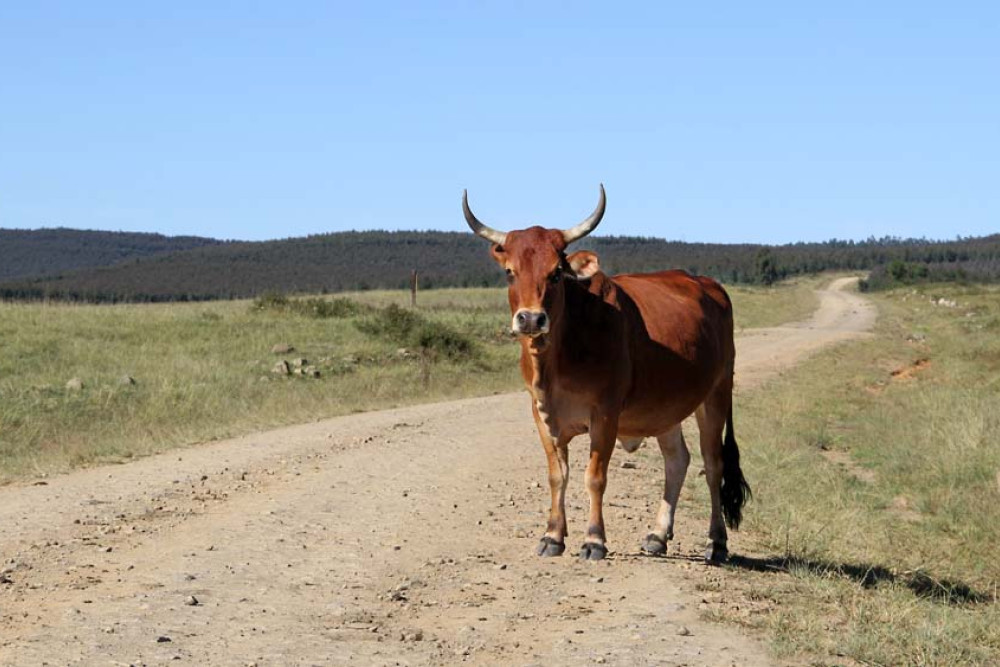Community & Business
28 September, 2024
Grazier plea over cattle on roads
A CATTLE property owner is pleading with motorists to slow down in areas where cattle may stray onto roads and be aware that livestock have “the right of way” when they are on a road.

Pinnacle Pocket grazier Peter Spies says he is sick of “whingers” complaining to Tablelands Regional Council about cattle getting onto roads when, at times, it is unavoidable.
“Glen Allyn Road cuts our property in half, so we have to move cattle across the road,” he said.
An extended wet season had also been a contributing factor in cattle seeking out green grass outside the fence line.
“We have had a disastrous season, with all the rainfall which meant paddocks were wet, chopped up, did not get a chance to dry and lack of sunlight to drive photosynthesis and drive grass growth,” Mr Spies said.
“This means there is not much ‘guts’ or nutrition to the grass and when cattle are reintroduced to a paddock, in rotation, they are going back into grass that had inches of new growth, not a foot. Hence the body of feed did not build up - it was like a rice-paddy effect.
“You cannot blame a calf for pushing through a fence to access green grass, or freshly cut grass when council mows along the road. It has legume in it – glycine, Shaw creeping vigna and Desmodium.
“They are smart. A four-barb fence may stop older cattle, but it doesn’t stop calves, or weaners/yearlings wanting to access feed or get back to their mums.”
Mr Spies said he had witnessed people speeding along the road that divides his property.
“I’ve seen them doing over 100km/h. A few years ago, I found the fence over. Someone obviously heading towards Malanda, did not take the corner and took a post out. They did not have the decency to let me know and must have sped off,” he said.
“Recently, a woman driving a white SUV, who constantly complains to TRC about cattle being on the road, pulled up and gave a tongue lashing to my 15-year-old lad. He informed me she deliberately obstructed him when he was trying to get a calf in.
“He gave as good as he got though and told her if people want to move out bush, ‘then leave your suburban-attitudes behind. You’re in a rural area now’.”
He said all drivers needed to be aware of how to share the road safely with wildlife, livestock, domestic animals and horse riders.
“Queensland still adopts the English common law rule that livestock/animals have the ‘right of way’ when they are on the road,” Mr Spies said.
“This age-old law effectively states that owners or occupiers of land adjoining highways are under no legal obligation to fence, or to maintain their fences, along the highway to prevent their animals from straying onto the highway.
“This means that in the event of accidents with animals, any damage livestock cause to people or their vehicles cannot be blamed on their owner.
“Sometimes they may be my cattle, sometimes someone else who leases country behind my place with fences in disrepair, or a fellow across the road who runs breeders (and I breed bulls).
“We are dealing with animals. Bulls can just jump a four-barb fence if libido is driving them! When council calls me, I put the cattle in, irrespective of who owns them.
“We know each other’s tags by the colour. The local laws fellow will call me as I live here, others are absentee.”
Mr Spies has a strong message to those who complain.
“I say to these ‘tree-changers’ - act rural. Slow down for cattle and be courteous. Let a landholder know that there may be cattle on the road. They may not be theirs but they generally will help,” he said.
“We all look out for each other up here. Stop just going straight to council looking to hand out fines. I am sure they are sick of it. Just work with the landholder.
“I have a four barb, strained fence, but the only thing that may stop calves is electric fencing and I will get around to that as cash comes in. Not all us graziers are flush with cash. It is an industry with very thin margins.”
Mr Spies said he had also approached a local councillor twice about getting signage installed warning that cattle may be crossing the road.


